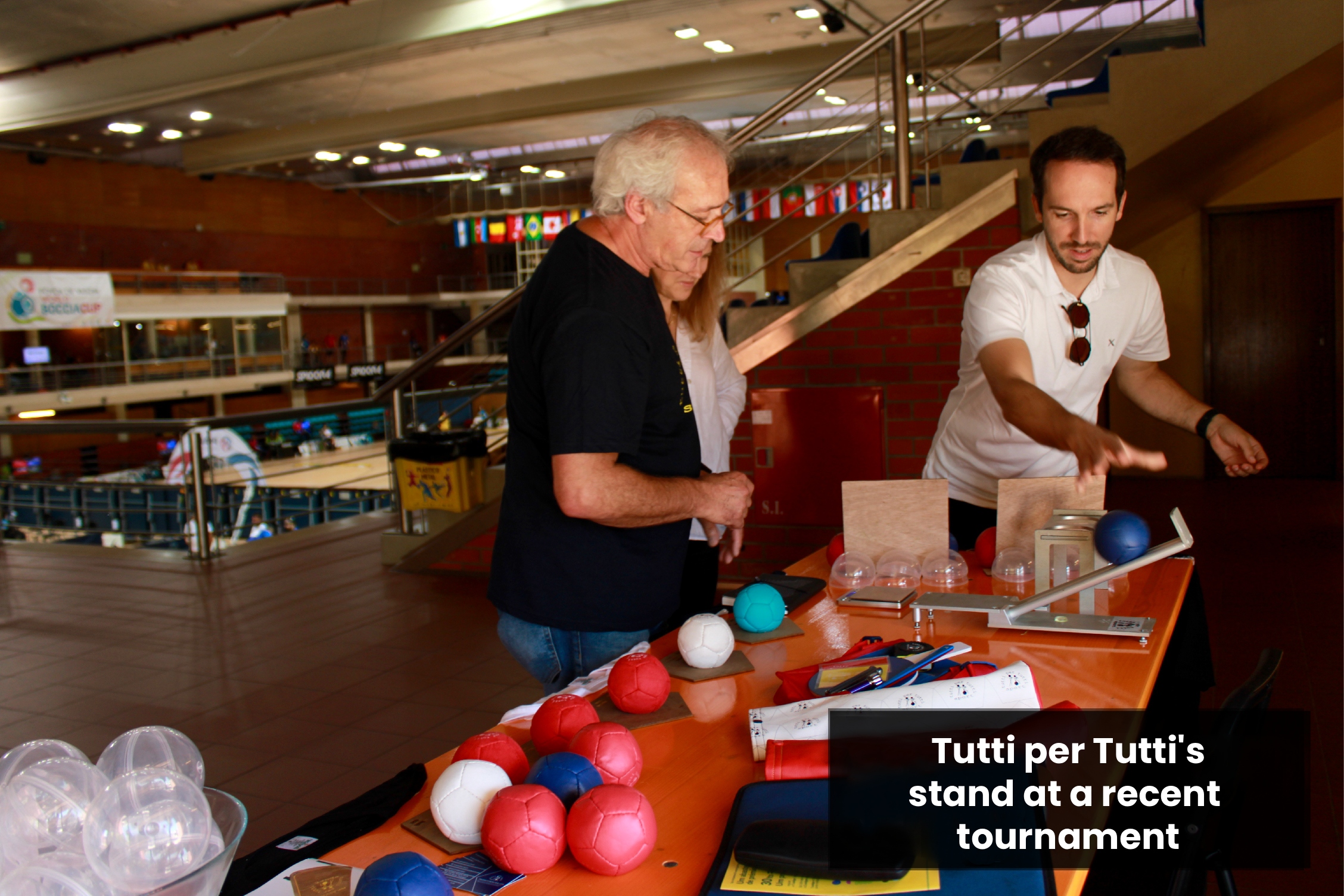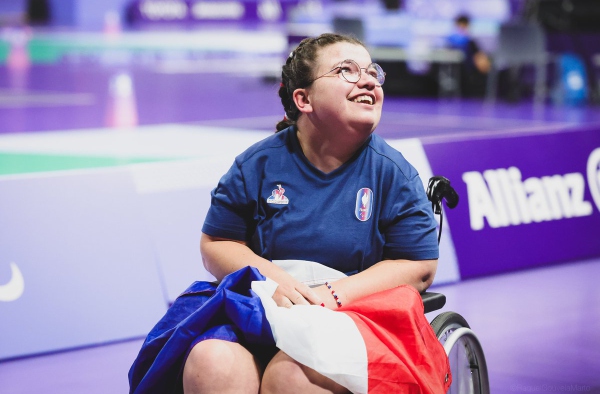By Graham Thomas
Sports equipment can be expensive, whether you are buying a tennis racquet, an adapted indoor exercise bike, gym clothes or a boccia ramp.
That bike might cost you €2,000 and so might the ramp, if it’s aimed at the elite-end player, meaning for many countries, clubs, and schools, that figure makes the sport inaccessible.
In Portugal, however, one small company is working to break that barrier. Tutti per Tutti Sport, run by experienced coach and referee Paulo Magalhães – believes the future of boccia rests on a simple idea: accessibility.
Their latest creation, a modular ramp priced at less than €100 for beginners, could be the most important innovation in the sport for decades.
“In sports, it’s not only for the elite. It’s for everyone,” says Magalhães.
“It’s our mission: boccia for everyone.”
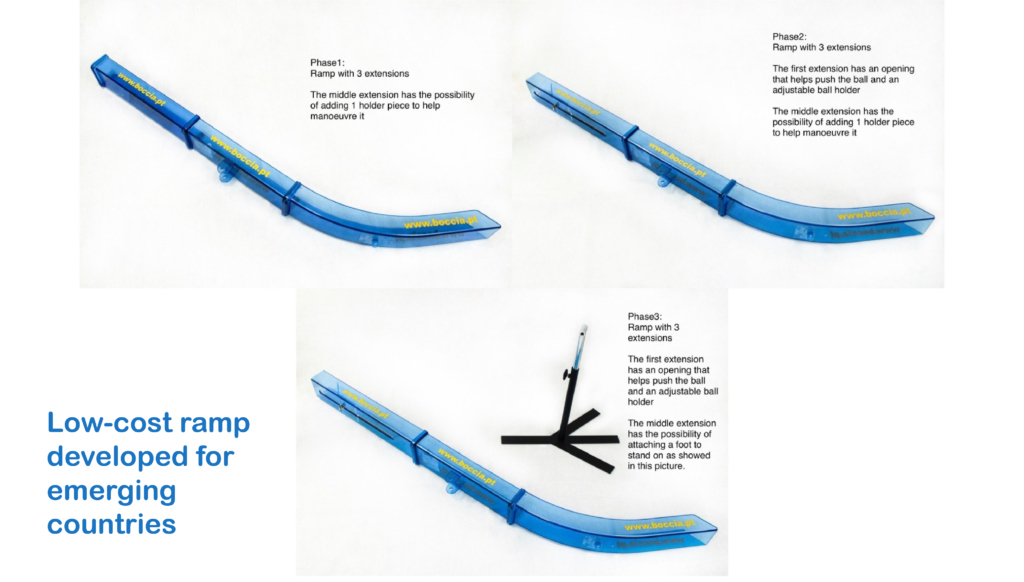
From Referee to Innovator
Magalhães’ journey in boccia began in 1988 as a referee. By 1994 he was coaching, and in 2003 he helped organize the Boccia World Championships in Portugal.
Over those years, he saw athletes sometimes restricted not just by their disabilities, but by the prohibitive cost of equipment.
“In 2013, the price of the balls was too high and very difficult for athletes,” he recalls. “That is why I brought the challenge to my colleagues: to start the enterprise and produce boccia balls at a more normal price.”
Tutti per Tutti was born. From a small team of three, the company in the city of Porto grew into a recognised name in the sport, exporting handmade balls and equipment to more than 55 countries.
Their work drove down prices across the market. Where once three manufacturers controlled supply, Tutti per Tutti forced change through affordability.
Now, they’re hoping to do it again—this time with ramps.

More Than Just Price . . . A Ramp in Three Phases
Traditional boccia ramps are tailor-made to the needs of individual athletes. While highly effective in competition, they are prohibitively expensive, especially for beginners or developing programmes.
Magalhães’ solution is a phased, modular ramp.
“They can buy a little part and play with a little part,” he explains.
“After, buy another part and play a little better. When the player grows up, they can buy the foot and put it in the ramp. In the beginning it’s less than 100 euros.”
At its most advanced, the full set-up would cost about €300—still a fraction of current prices.
The team has already tested the design in Portuguese schools with encouraging results. Early versions are hand-controlled rather than foot-operated, making them intuitive for children and newcomers.
“We think it’s very easy for a beginner to understand how to play boccia,” says Magalhães. “We think it’s very positive.”
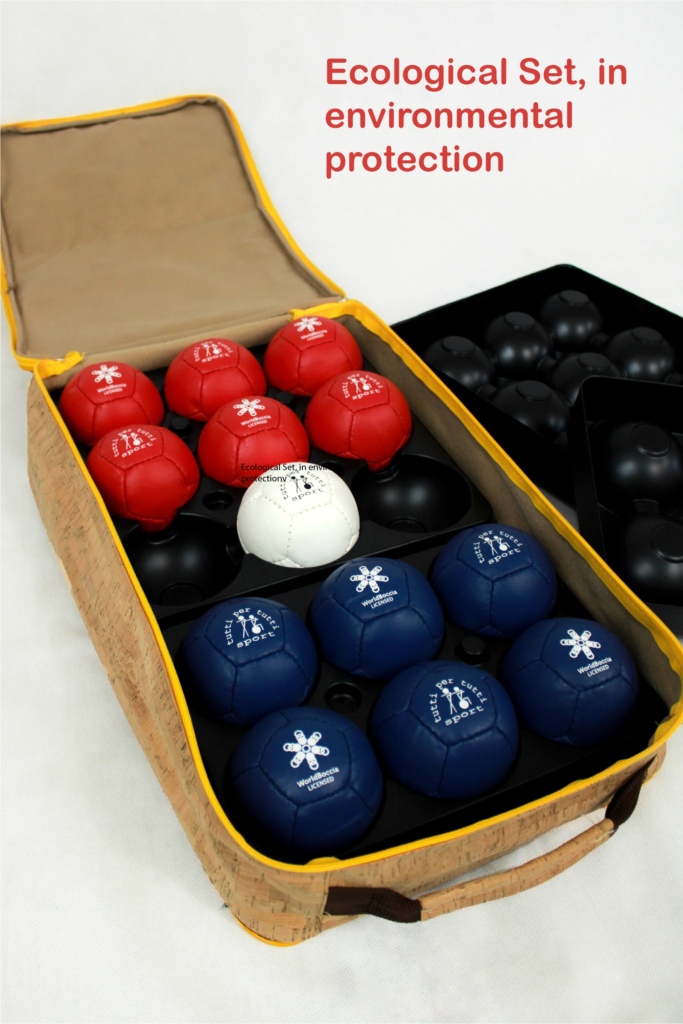
Employment Ethos
While affordability is the headline, the company’s ethos runs deeper. Tutti per Tutti prides itself on sustainability and ethics.
Balls are made with cork, eco-friendly synthetic leathers, and water-based dyes instead of chemical solvents.
They no longer use animal products and they even regenerate old balls for redistribution in developing countries, especially those with Portuguese-speaking ties.
Equally important, every item is made in Portugal, often in collaboration with institutions employing people with disabilities.
“All our balls are made by hand,” Magalhães notes with pride. “We work with four or five institutions outside our company.
A lot of the people are disabled. It’s part of the ethos of the company.”
This dual mission—creating affordable equipment while providing meaningful work—has helped Tutti per Tutti carve a unique niche in boccia.
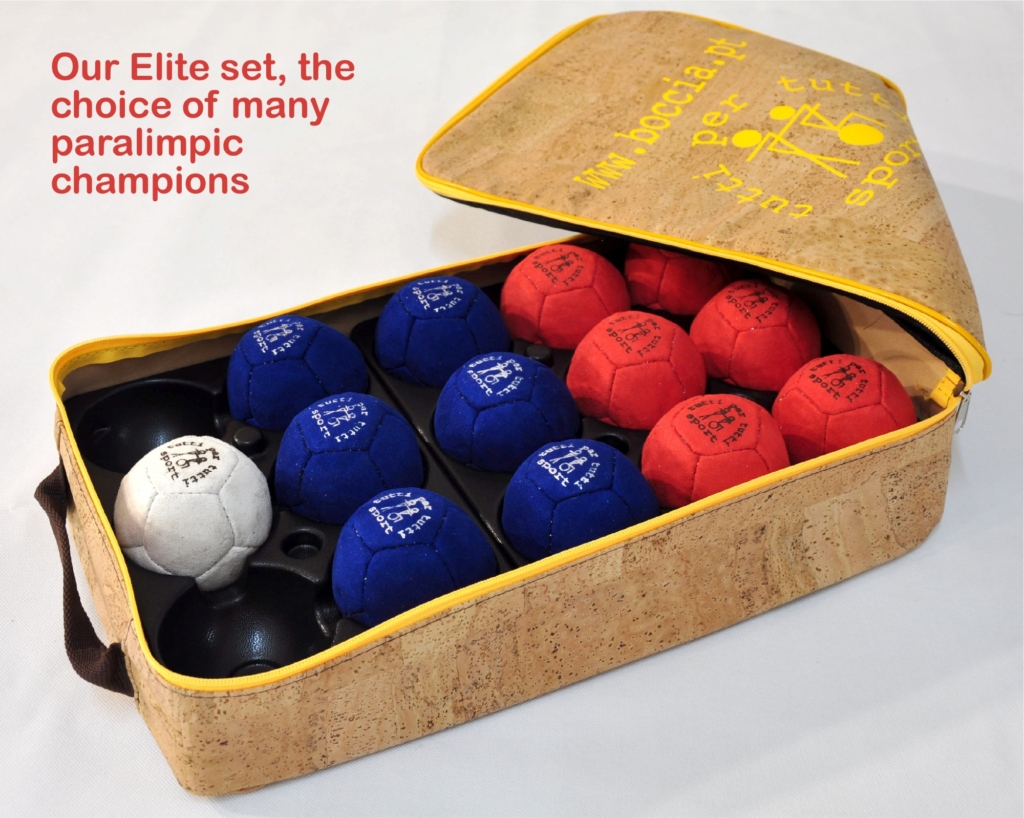
Beyond the Paralympics
Boccia is best known as a Paralympic sport, but Tutti per Tutti are determined to expand its reach.
“Boccia could be a sport for all, any people,” Magalhães insists.
The company promotes the game among elderly people, those with intellectual disabilities, and even students without disabilities.
It’s a vision echoed in ProdigyFrontier, the company that owns the Tutti per Tutti brand.
It describes its mission as “providing everyone with access to the practice of boccia, promoting training based on inclusion, health and well-being.”
The potential is vast. With an aging population in Europe and beyond, boccia’s mix of accessibility, strategy, and gentle physical activity makes it ideal for schools, care homes, and community centers.
Tutti per Tutti’s affordable ramp could be the catalyst that allows the sport to spread well beyond its Paralympic roots.
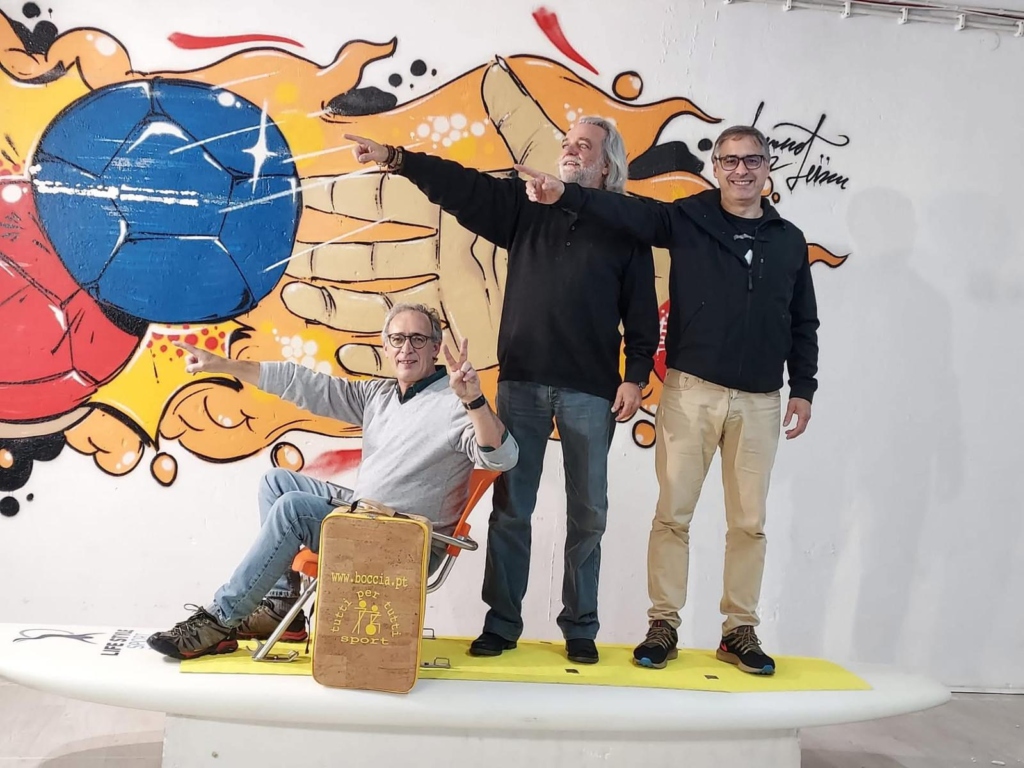
A Global Impact
The last time Tutti per Tutti introduced a disruptive product, the effect was immediate. Their affordable boccia balls forced competitors to cut prices, reshaping the market.
Magalhães believes the ramp can do the same.
“When we started our enterprise, the price of boccia balls decreased very hard,” he says.
“Now. we try to think about a ramp for beginner athletes, and for beginner countries starting in boccia, so they have the same possibility.”
That possibility extends far beyond Europe. With their established distribution network in 55 countries, Tutti per Tutti already have the channels in place to reach developing nations where boccia programmes are just beginning.
A ramp priced in the hundreds rather than thousands of Euros could be the difference between a sport that struggles for a foothold and one that thrives.
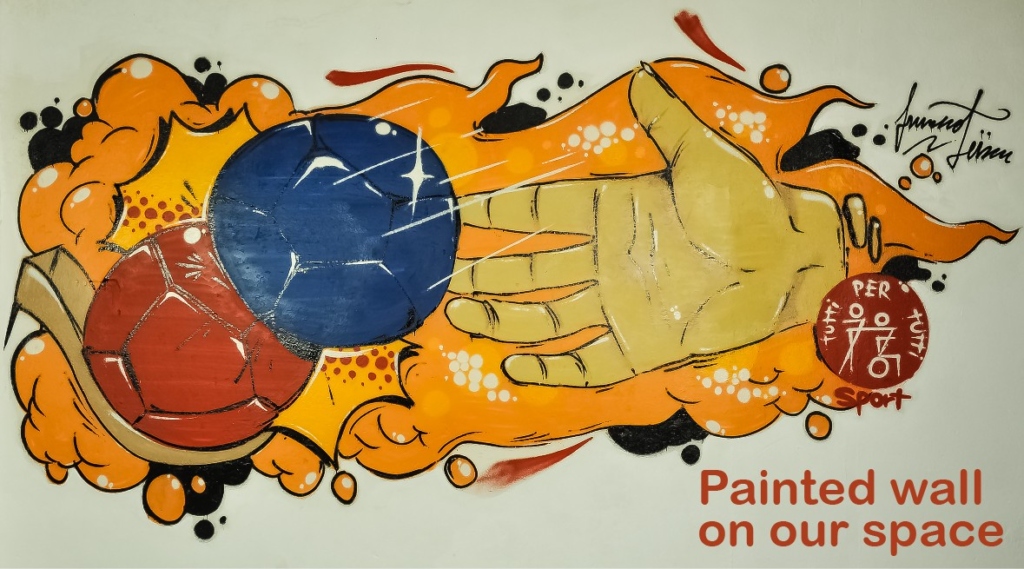
A Personal Mission
For Magalhães, the determination is more than business success. With 25 years of experience as a physical education teacher working with people with disabilities, his life has been intertwined with adaptive sports.
“This is why our enterprise has the goal to promote the Paralympic sport and the adaptive sports,” he says.
His colleagues – Paolo Sá, a former handball coach, and Carlos Vasconcellos, who entered boccia 12 years ago – share that passion.
Together, they’ve built a company that blends craftsmanship, innovation, and a belief in sport as a tool for inclusion.
Looking Ahead
In the coming months, Tutti per Tutti plan to finalise the ramp design and bring it to market.
If successful, the innovation could redefine boccia’s accessibility worldwide, opening the sport to thousands of new players.
For Magalhães, the mission remains clear.
“We need more players, more countries, more people playing boccia to grow the sport,” he says.
“This is why we work: boccia for everyone.”


